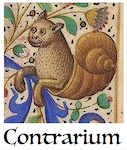Sweden. Day 32. Swedish hospitality.
Some days a lot happens and some days nothing happens, so perhaps the idea of dividing this texts in the form of a daily journal may have been a mistake. But then again, how many people can be interested in the travel journal of someone who is not a celebrity in any case?
Besides, part of the challenge for me was to write a new text every day, anyone reading it or not, and since my time here is ending, I shall continue with the daily schedule for just a few more days now.
But today’s text is really about yesterday, as in the morning when I was returning from the grocery store by bus, an elderly couple descended at the same time in front of the former school. Usually no one else descends at this stop, so I started talking with them, then eventually also did a short video interview with them for my documentary. At this point Lola, which is a Spanish artist who arrived a few days ago and will be staying here for a few weeks, dropped by and joined the conversation too.
By the end of the conversation, the couple, who lives about 2km from the former school, invited us that same afternoon for tea at heir house.
And so we went. Snow was falling heavily and the road was all white and cold, but at least it wasn’t so windy. We were received with smiles by the elderly couple. The man — let’s call him Max, to protect his identity and because I don’t remember his real name — spoke excellent English; his wife — let’s call her Ulrika — reasonably well too. Both are retired and live in Björkö part of the year, although they also have a house in Stockholm.
They were very kind. They offered us coffee, tee, rulltårta made by Ulrika herself with homemade blueberry jam — from blueberries from their own tree — and homemade honey as well, as they have some beehives and produce it; also cookies (pepparkakor), but those were not homemade, and finally some type of walnut cake. It was still cold and snowy outside, and it felt warm and cozy inside. When we finished our coffee, they also offered us some white wine which we gladly accepted. They showed us their house, all full of paintings and decorations done by Max’s sister, who is also an artist, as was his mother. Art seems to run in the family (he, however, does not seem to paint).
They told us about their family and their life. They discussed the blessings and problems of in living in Stockholm. (He would rather live in Björko the whole year; she however, said that “she needs to see people” and prefers to stay in Stockholm and come only a few times in the year). They talked about their church, about some kind of “beautiful, decorated graveyard” that we should visit, and about their favourite movies (among others, he mentioned “Life of Brian”). They gave us the recipe for the rulltårta. As we left, they gave us, as a parting gift, a jar of blueberry jam and another of their local honey.
Are Swedish people friendlier or more hospitable than people in other European nations? I kept thinking that this would probably not have happened in Germany, Or, for that matter, in England, Switzerland or the Czech Republic. But it could happen in Italy or Spain.
Then again, it might not be about nationalities, but about what I talked before, the personality split between the city and the country. In the country people tend to be friendlier to neighbours — this would probably not happen in Stockholm, where there is more distrust. The other time when something similar happened and I was invited for lunch or coffee at home by total strangers, was in Italy; but also there it was in a small village in the countryside where most people knew each other.
Would I invite some random person I met at the bus stop to have coffee at my house? Knowing what I know, probably not, but I lived mostly in cities. Things are different in the countryside.
Why such difference in mentality? I venture the following explanation. Most of the encounters we have end in disappointment. Someone you thought was nice is revealed to be a crook, a liar or a thief. If you live in the city, you are permanently surrounded by people, and you know that most of them are potential liars, crooks or thieves. But in the countryside, you already know most people around, and there’s not so much to do anyway. If a visitor comes, at least it’s something new: he may as well be a crook, a liar or a thief, but he provides just a few moments of entertainment and then you probably won’t see them again.
This is pretty much what one of my interviewees said, in fact: that life here in winter is “boring”, so people just go to each others’ houses to have coffee. But “in Stockholm, everyone is afraid of each other”, and they may not even know their neighbours who live in the same building for 20 years.





